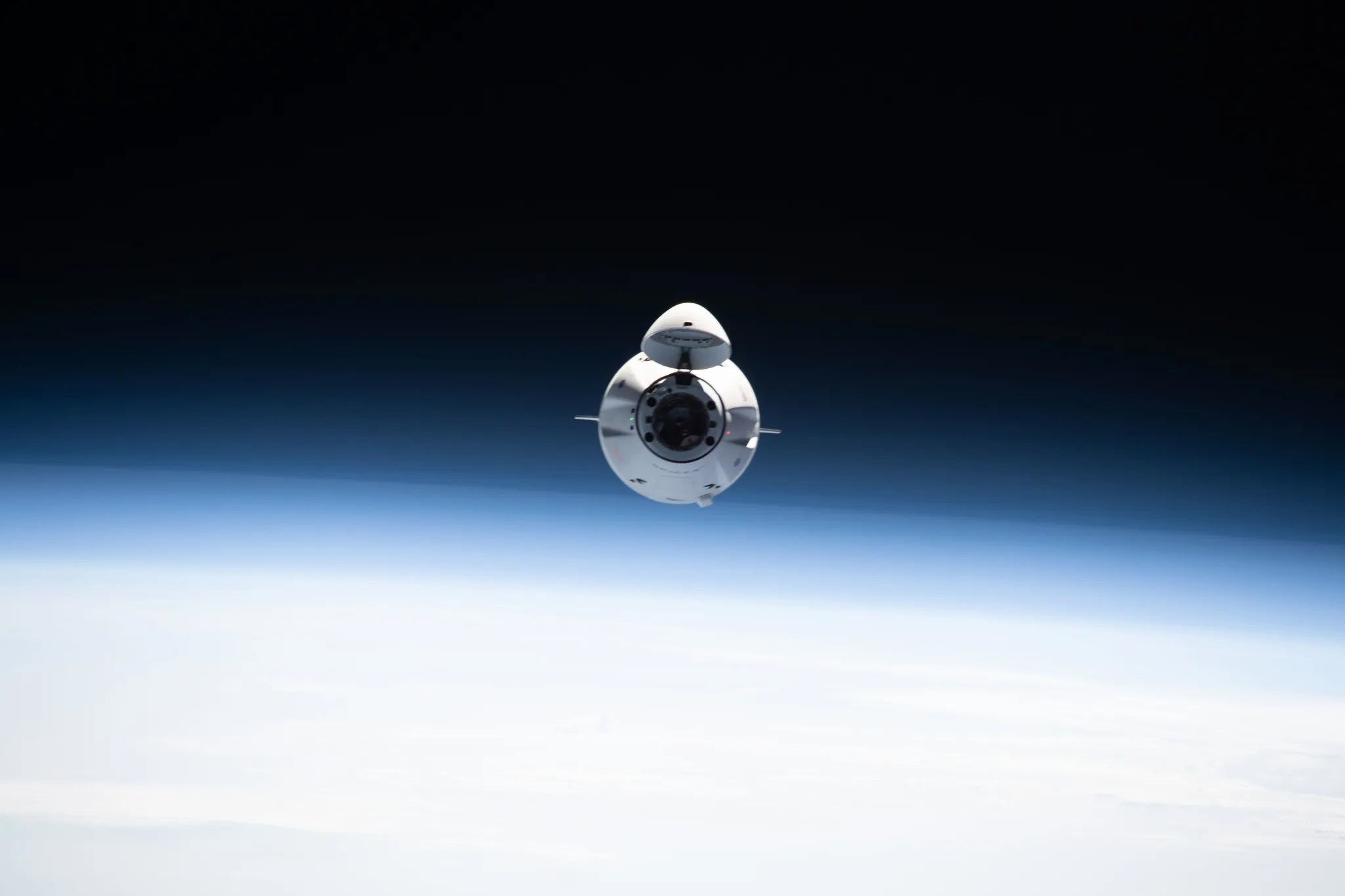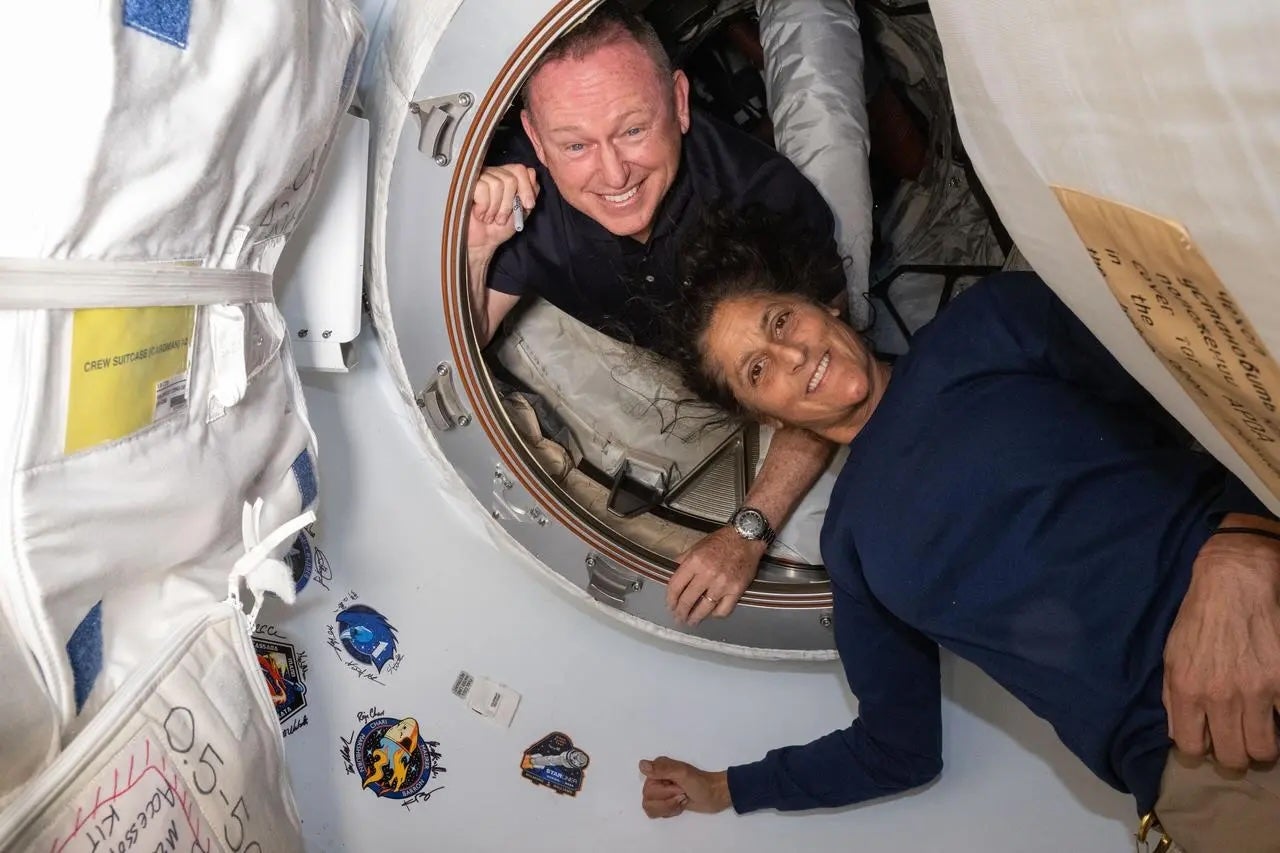NASA announces crew members cut from SpaceX flight to free up seats for stranded Boeing Starliner astronauts
The Dragon Capsule will launch from Florida’s Cape Canaveral Station to the International Space Station in late September
A SpaceX Dragon capsule is set to launch next month with two empty seats to return the stranded Boeing Starliner astronauts to Earth early next year.
NASA announced on Friday that two crew members would be cut from the SpaceX Crew-9 mission to make room - astronauts Zenda Cardman and Stephanie Wilson. It would have been Cardman’s first spaceflight.
The Dragon Capsule will launch from Florida’s Cape Canaveral Station to the International Space Station in late September.
It will carry NASA astronaut Nick Hague and Roscosmos cosmonaut Aleksandr Gorbunov to ISS where they will spend around five months in orbit. When they return in February 2025, they will be travelling with astronauts Sunita Williams and Barry Wilmore.

Williams and Wilmore launched into space on Boeing’s Starliner on June 5 but had trouble docking because of issues with the craft’s thrusters, and helium leaks that delayed the process by nearly an hour. Since then, engineering teams have reviewed data, conducted flight and ground testing, consulted experts, and developed return contingency plans.
But it has meant that the Starliner astronauts’ ten-day mission aboard the first-ever crewed flight of Boeing’s Starliner has now turned into an unexpected months-long odyssey.
“Spaceflight is risky, even at its safest and most routine. A test flight, by nature, is neither safe, nor routine. The decision to keep Butch and Suni aboard the International Space Station and bring Boeing’s Starliner home uncrewed is the result of our commitment to safety: our core value and our North Star,” NASA Administrator Bill Nelson said in a statement last Saturday. “I’m grateful to both the NASA and Boeing teams for all their incredible and detailed work.”

SpaceX, the private space company owned by Elon Musk, has been in contract with NASA since 2010 and provides flights on its crafts to ISS. Each mission sends as many as four astronauts.
Ahead of the Dragon Capsule launch, NASA and SpaceX, are working to reconfigure its seats, as well as on Dragon-specific spacesuits for Williams and Wilmore.
But the decision to bring in SpaceX to return the Boeing astronauts has not been without controversy.
Boeing had wanted to bring the astronauts back on the Starliner immediately, according to the New York Post on Friday, rather on competitor SpaceX’s craft. The newspaper reported that Boeing was convinced the Starliner was in “good enough conditions to bring the astronauts home” - but NASA had disagreed.
The Independent has contacted NASA and Boeing for comment.
“Boeing continues to focus, first and foremost, on the safety of the crew and spacecraft,” Boeing said in a statement last week.
The uncrewed Starliner, which is designed to operate by itself, will undock from ISS early next month, journeying back under parachutes to a landing zone at New Mexico’s White Space Harbor.
With reporting from The Associated Press
Subscribe to Independent Premium to bookmark this article
Want to bookmark your favourite articles and stories to read or reference later? Start your Independent Premium subscription today.


Join our commenting forum
Join thought-provoking conversations, follow other Independent readers and see their replies
Comments